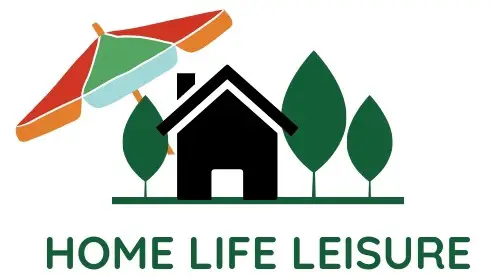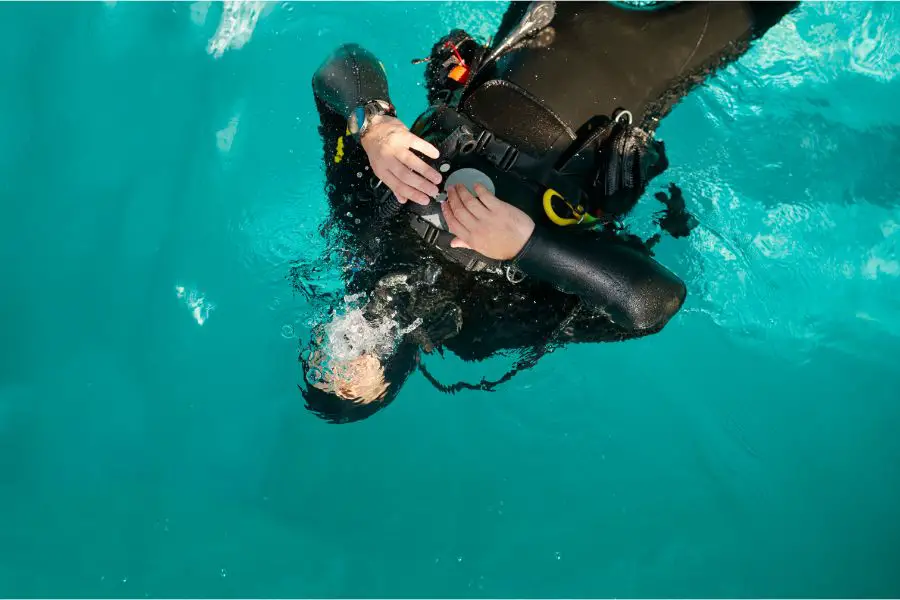Scuba diving is an exciting activity that allows you to explore the underwater world and get up close with marine life. It’s often associated with exploring exotic locations, swimming alongside dolphins, fish, and other aquatic life.
However, before diving into the deep blue ocean, it’s important to start with the basics in a controlled environment. That’s where scuba diving in a pool can be useful.
Using a pool can help you gain confidence in the water, while becoming more comfortable with scuba gear. It’s also a great way to practice skills and techniques that will come in handy when you’re out in the open water.
In this post, we’ll explore the benefits of scuba diving in a pool and why it’s an essential step for beginners. We’ll also look into whether it’s possible to scuba dive in your pool at home!
Benefits of Scuba Diving in a Pool
There are many training facilities that provide specially designed pools intended for teaching the basic scuba skills. These commercial pools are generally much larger than a typical residential pool, and can offer more versatility in developing your skills.
Some of the benefits of scuba diving in a pool:
Familiarity with Equipment
Scuba diving in a pool allows you to get used to the equipment without the added stress of being in open water. When you’re new to scuba diving, it can be overwhelming to try and remember all the different pieces of equipment and how they work.
By starting in a pool, you can take the time to get comfortable with the gear and learn how to use it properly. This includes your wetsuit, diving mask, buoyancy control device (BCD), regulator, and fins.
Developing Your Scuba Skills
Once you’re comfortable with the equipment, you can start to focus on developing your skills.
A pool is an excellent place to practice both basic and advanced techniques. This could include buoyancy control, clearing your mask, and sharing air with a buddy. These skills are essential for safe diving and will come in handy when you’re exploring open water.
By practicing these skills in a controlled environment, you’ll be more prepared and confident when you venture out to an open body of water.
Learn at Your Pace
Another benefit of scuba diving in a pool is that it allows you to learn at your own pace. Everyone learns differently, and some people may need more time to feel comfortable in the water.
In a pool, you can take all the time you need to get used to the equipment and practice your skills without feeling rushed. You can also take breaks whenever you need to, which is not always possible in open water.
Prepare for Certification
Scuba diving in a pool is also a great way to prepare for open water certification. While it’s possible to scuba dive in open water without certification, you’ll generally need to remain under supervision of someone who is certified.
Many scuba diving courses require you to complete a certain number of pool dives before moving on to open water dives. This is because the skills you learn in the pool are essential for safe diving in open water.
By mastering your scuba skills in a pool, you’ll be better prepared for your open water dives and will have a more enjoyable experience.
Fun Learning in the Pool
In addition to being a great way to learn and practice scuba diving, a pool can also be a fun place to explore.
Even in a small pool, there are often interesting things to see, such as underwater obstacles, toys, and even fish. These can help make the learning process more enjoyable and less intimidating.
Can You Scuba Dive at Home in a Pool?
Yes, you can scuba dive at home in a pool if you have a pool that meets the necessary requirements for scuba diving. To scuba dive at home in a pool, you’ll need a pool that is deep enough and meets the minimum size requirements for scuba diving.
A standard pool size for scuba diving should be at least 20 feet long, 10 feet wide, and 8 feet deep. Many residential in-ground pools will meet this requirement.
Even these smaller household pools can help you hone essential scuba diving skills such as buoyancy control, mask clearing and regulator recovery.
While there’s great convenience of being able to walk right outside your house to practice your scuba skills, it’s essential to prioritize safety. Before attempting to scuba dive in a home pool, ensure that you have the necessary skills, equipment, and certification.
If you’re a beginner, you’ll want to ensure you have someone that is qualified or certified as a scuba diver.
Here are a couple of drawbacks of scuba diving at home.
Less Space, Less Skill Development
One drawback of scuba diving in a pool at home is that you’ll have much more limited space to practice your techniques. Often a pool depth of 10 feet or more is provided at training facilities, which will provide better simulation of open water.
Many in-ground pools at home provide 8 feet depth, which will limit your ability to practice deep diving.
Safety Risks
It’s important to note that scuba diving at home in a pool is not without its risks.
Scuba diving requires proper training and certification, and it’s crucial to follow all safety protocols, even when diving in a home pool. For inexperienced divers, the lack of qualified trainers at your home poses an increased risk.
Often times being at home can result in complacency when it comes to safety. Anytime you’re scuba diving –whether at home, under supervision, or in open water– you’ll need to remain on high alert and ensure you’re following all necessary safety precautions.
How to Practice Scuba Diving in a Pool
Practicing in a pool is a great way to learn and improve your scuba diving skills in a controlled and safe environment. Here are some of the ways you refine your skills:
1 – Equipment Setup and Safety Check: Before each dive, you should check and set up your equipment properly. Ensure all connections are secure, and all the equipment is working correctly.
2 – Descending and Ascending: Practice descending and ascending in the pool by controlling your buoyancy, using your fins and breathing techniques.
3 – Buoyancy Control: One of the essential skills for scuba diving is buoyancy control. You can practice this skill by hovering motionless underwater and maintaining your depth without moving up or down.
4 – Mask Clearing: Practice clearing water from your mask by flooding it and then exhaling through your nose to remove the water.
5 – Regulator Recovery and Clearing: In the event that you lose your regulator, you need to know how to recover and clear it. Practice this skill by intentionally dropping your regulator and retrieving it from behind your shoulder.
6 – Buddy Breathing: Another important skill in scuba diving is sharing air with a buddy. Practice this skill by taking turns breathing from one regulator while the other holds their breath.
These are just a few examples of the skills you can practice in a pool.
Always remember to follow proper diving procedures, dive with a buddy, and never exceed your comfort or ability level. Practicing in a pool is an excellent way to build confidence and prepare for future dives in open water.
The Ultimate Pool for Scuba Diving
If you’re looking for a thrilling way to scuba dive in a pool, you may want to consider checking out the Y-40 Deep Joy pool. This is an attraction at the Hotel Millepini in Montegrotto Terme, Italy.
The Y-40 pool has a maximum depth of 131 feet (40 meters), making it the deepest in the world.
It was designed as a training pool for free diving, scuba diving, and other underwater activities. The Y-40 is divided into several different depths, with platforms and underwater caves to explore.
The pool also has a transparent tunnel that allows visitors to observe divers from inside the pool.
The pool is heated to a comfortable temperature around 90°F, making it a popular destination for divers and swimmers looking for a unique and immersive experience.
The Y-40 Deep Joy pool is not only a popular training facility for professional divers, but also a popular tourist attraction for visitors looking to experience the thrill of diving in a safe and controlled environment.
Limitations of Scuba Diving in a Pool
It’s essential to keep in mind that most scuba diving pools are not meant for deep diving. While there are some pretty advanced training facilities, most pools are not deep enough to provide the necessary experience for more advanced skills or deep diving training.
Scuba diving pools are primarily used for practicing basic skills and training, and it’s important to progress to deeper and more challenging environments such as open water as your skills and experience improve.
While pools have some limitations for scuba diving, they offer a perfect environment to improve other swimming skills with a kickboard.
Final Takeaway
While there’s nothing like scuba diving in open water, pools are definitely useful in developing skills. Even a normal residential in-ground pool can help you cover the basics, such as buoyancy control and mask clearing.
Regardless of where you plan to scuba dive, safety should always be the #1 priority. Sometimes being at home can result in complacency, in which it’s important to ensure all safety precautions are taken.
Happy Diving!
Husband and father of three (actually, four if you include the pool). I’m an avid DIY-er and weekend warrior that enjoys taking up new projects around the house to help us maximize leisure right at home. I enjoy researching and sharing various tips, tricks and knowledge to help others make their home an oasis.

